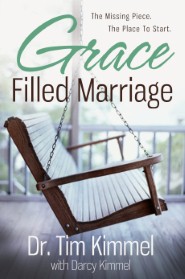| Source: autostraddle.com |
Thanks to the Netflix series, most everyone knows that Orange is the New Black is about a middle class white woman who serves a short sentence in a women's prison. Of course, my reader OCD insisted I read the book first.
Piper Kerman recalls mostly her feelings throughout each instance in this memoir...duh, there's going to be nothing but a mess of feelings. She recalls both incidents involving her and incidents not involving her. Taken one by one, the incidents don't seem to stand out as exciting or amazing; however, as an overall piece, I believe Kerman accomplishes what she may have intended.
As each story and incident is told, they begin to layer upon each other until a picture of the American prison system comes into focus. I believe this is what Kerman wants readers to see: the humanity, struggling to stay human, behind bars. I am torn with this overall picture. The logical part of me says, "You screwed up, you're in prison, that's the way it works." But my heart aches at the various ways in which prisoners are wrongly treated, abused, and taken advantage of by those looking after them.
Kerman also echoes that of another nonfiction book I reviewed in April called Shakespeare Saved My Life, by Laura Bates. (Bates teaches Shakespeare to hard core inmates and watches their lives turn around before her eyes.) In both books, the authors talk about the usefulness (or lack thereof) of prison activity. If a woman couriers drugs because she has no other way to make a living, you lock her up for a term of so many years, then release her, what do you think she will do once out? She's gotta eat somehow and she has no more skills now than she did before she was locked up. Why is the time spent in prison not being used to give the inmates skills and abilities to make an honest living on the outside? Why are the programs nonexistent or half-assed? This is a point upon which I can whole heartedly agree with both authors and have softened on my view of free education/college in prisons.
While the book was not a page turner in my opinion, I think Kerman asks the reader to observe these basic human needs through her experience and realize there are definite problems with the system, which are hurting very human people, cons or not. Sometimes her logic and stats are questionable...such as the fact that 435,000 people a year die from cigarettes in the US, while the toll for illicit drugs (which these prisoners are mostly in for) is 17,000. I would bet many more people are smoking cigarettes than shooting heroin throughout the nation, which skews the numbers in heroin's favor. Regardless, she does paint a picture that makes you think.
Now on to watch the Netflix series! Anyone watch it? Anyone know how many seasons there are?







